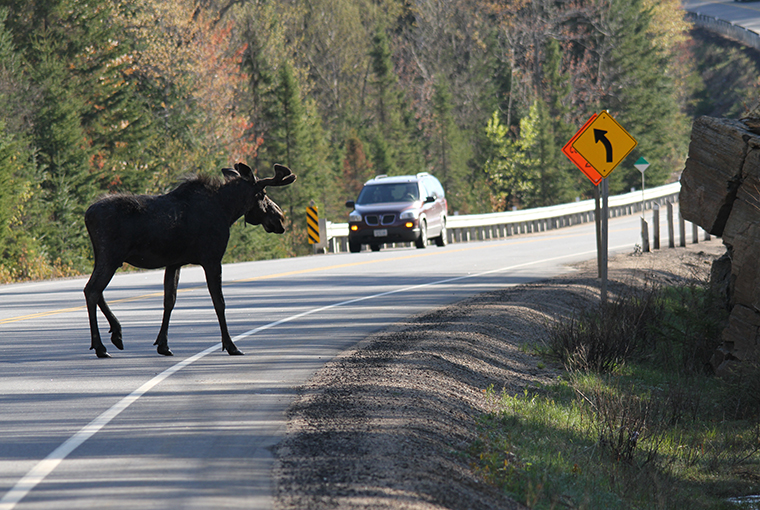
My hunting buddies were optimistic as we headed north to Ear Falls for our annual moose hunt last fall. Skunked for the past three years, we never dreamt that our luck would change by finding a roadkill moose. This is what I learned from the experience.
Our story
We were travelling west on Highway 17 between Upsala and Ignace and saw flashing lights down the road. There was a dead moose on the right shoulder and a crumpled truck straddling the white line. The driver was OK and was happy to let us claim the moose in exchange for some meat. The OPP officer on site, referred me to Rick LeBlanc, Area Enforcement Manager with the Ministry of Natural Resources and Forestry (MNRF) in Thunder Bay.
LeBlanc directed us to field dress the moose and to proceed to the ServiceOntario office in Dryden to register a Notice of Possession — something we would need to provide to our butcher. The ServiceOntario staff patiently helped me get an online ONe-key identity and register the notice, and I soon had a confirmation email. We took the roadkill to the butcher and it was joined by my hunting partner Dan’s cow just days after.
7 steps to keeping road meat
If you hit a large mammal, react as you would with any collision. If serious, call 911. Get off the road safely, take a moment to calm down and assess your injuries, examine your vehicle, and contact your insurance company.
- If you have hit a large mammal, contact police because the damage will exceed the $2,000 threshold.
- If the animal is alive, leave it. The police or MNRF staff will deal with it. You should not dispatch it because you may be breaking the law depending on the season and your licence/tags.
- You cannot remove the animal from a national park but you may from a provincial park with written authorization from the park superintendent.
- If the animal is dead but on the travelled portion of the road, move it to the shoulder if it is safe to do so.
- Diagnose the animal to determine if it’s safe to eat before field dressing.
- Go online (on your phone if you can) and register the animal through a Notice of Possession and wait for the confirmation email.
- If you decide to field dress it, move the animal farther to the side or off the road allowance. If you need help, contact an experienced hunter.
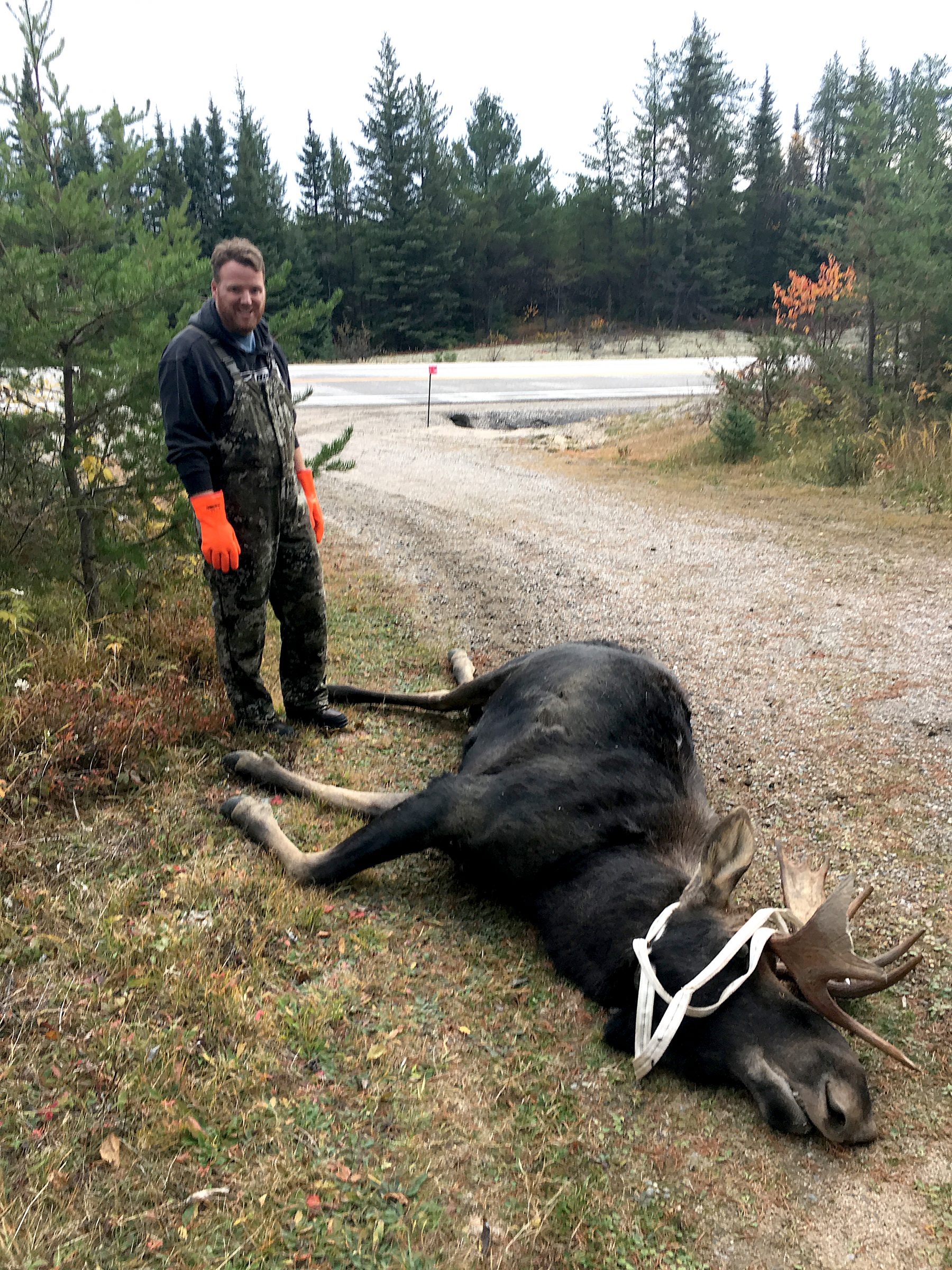
Is it safe?
Inspect the animal and if any of the signs are in the red column, do not keep it.
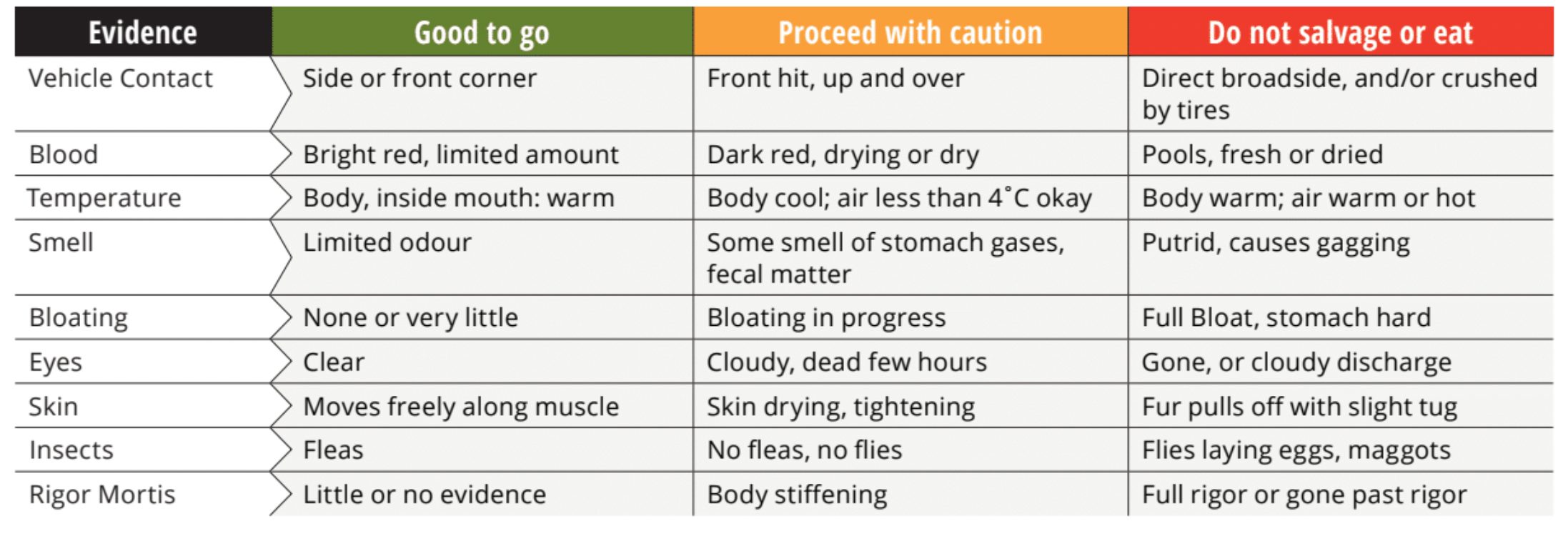
You’ll need a Notice of Possession
Contrary to popular belief, we could not have used our hunting licence or tags on the roadkill moose. According to David Critchlow, MNRF’s Provincial Enforcement Specialist, “Picking up roadkill has nothing to do with hunting licences and vice versa…You must submit a Notice of Possession” if you want to keep a dead animal that has been killed or found alongside the road in Ontario.
To register a notice, visit www.ontario.ca/page/keep-dead-wild-animal and follow the instructions. It’s best to create the ONe-key identity in advance.
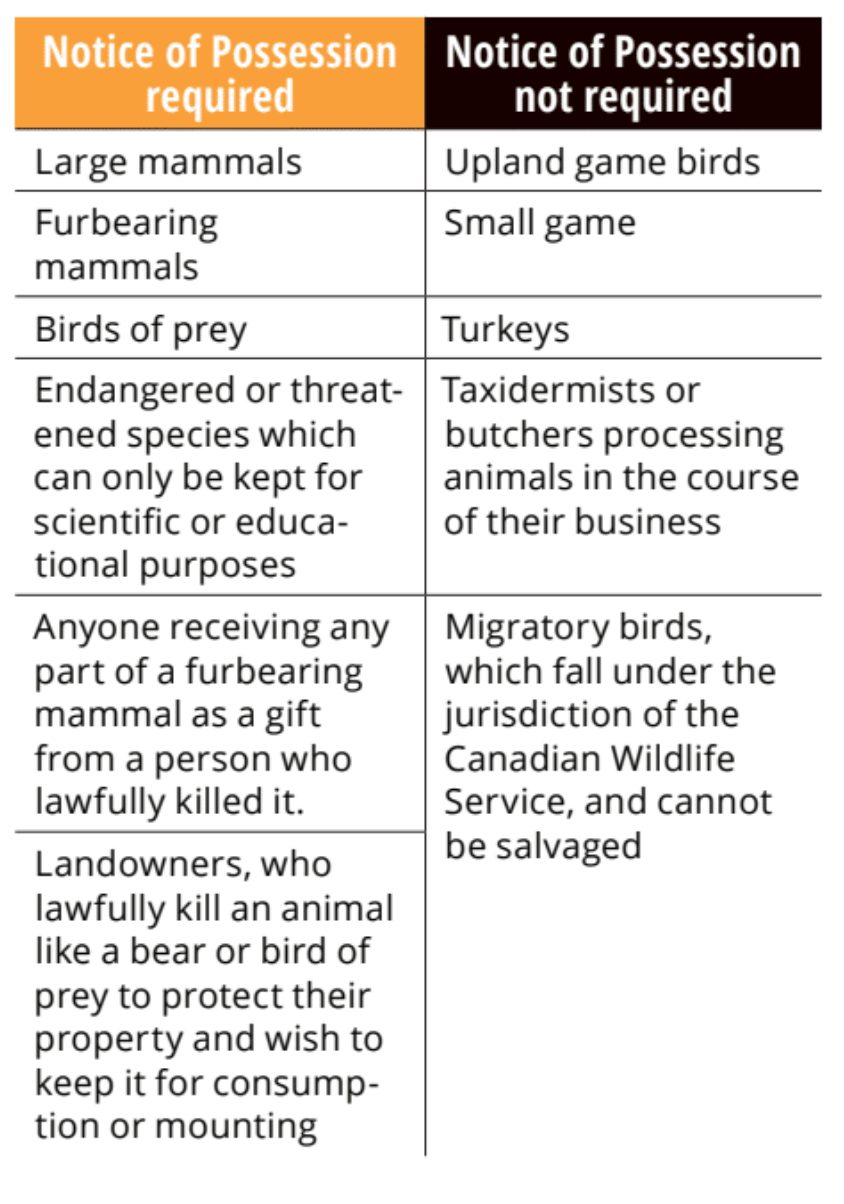
Wise words from the butcher
All of the butchers I contacted emphasized the importance of good field dressing including: rinsing the inside of the cavity with cold water to remove blood, stomach, and fecal matter; leaving the skin on; removing the windpipe; and opening up the cavity as much as possible to speed cooling.
In terms of roadkill, Herb Raglan, owner of Peterborough’s King Street Market, emphasized trusting your sense of smell — “the nose knows” if it is safe to eat.
Lori Potter, from Cloverbelt Country Meats added “That if the meat warms quickly, it can get an iridescent green-ish film. This can be trimmed away, but if it spreads later, it’s not good.”
If you don’t know a butcher, ask the police or MNRF staff on site. It is easier to find a willing butcher during the hunting season because they are already processing game animals. They have to keep them and their equipment isolated from domestic animals to avoid cross contamination.
Growing trend
Interest in harvesting or foraging roadkill aka bushmeat, double-dead meat, or minivan manna, has grown considerably over the past generation in the United Kingdom and across North America. There are cookbooks, TV shows, restaurants, and even festivals celebrating this food source. Collecting roadkill is legal in more than 30 US states and most Canadian provinces, including Ontario. Personally, I’m not going to start foraging for roadkill, but if I find another moose or deer, I have my ONe-key ID and am ready to salvage again.
Originally published in the Nov.-Dec. 2020 issue of Ontario OUT of DOORS magazine.
Field dressing digital resource: a step-by-step guide to dressing big game
Ontario game processors and butchers


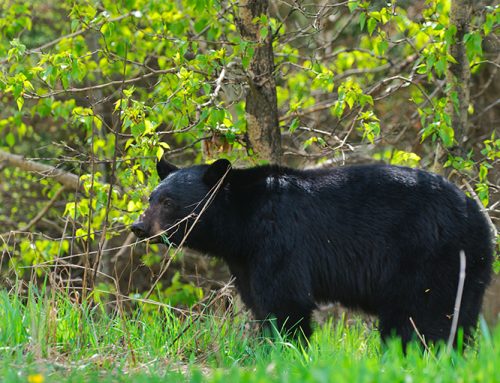
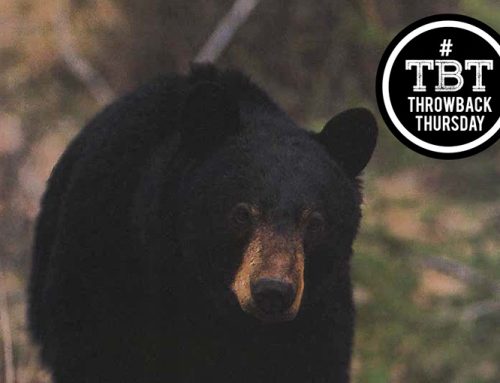


Leave A Comment